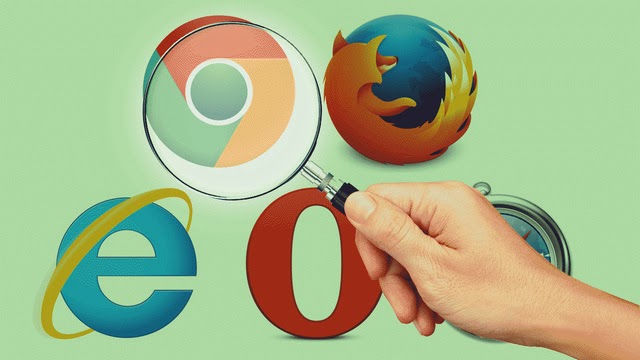
Dear Lifehacker,
With Firefox getting ads and Chrome extensions spying on me, is there really one browser that's better than the others when it comes to privacy? Does it matter if I use something like Opera or Safari instead? Is my browser watching what I'm doing and reporting back?
With Firefox getting ads and Chrome extensions spying on me, is there really one browser that's better than the others when it comes to privacy? Does it matter if I use something like Opera or Safari instead? Is my browser watching what I'm doing and reporting back?
That's a great question, and the answer isn't as clear cut as you might think. Different browsers handle user data in different ways, and when you toss add-ons and extensions into the mix, the picture changes even more. Let's take a look at some of the most popular browsers from a privacy angle, and see who has your back when it comes to tracking—or not tracking—what you do online.
Chrome, and Google's Position on Browser Privacy
.jpg)
Google Chrome, being the dominant web browser in most of the world, has taken a few hits lately in the privacy department. Between adware-filled extensions and microphone-listening exploits, It might look like Chrome has privacy problems. However, both of those issues are third parties using a combination of built-in features and user trust to spy on them—it has nothing to do with the browser itself. We'll get to how third parties play into things a little bit later, but first, let’s talk about Chrome on its own.

Firefox, and the Mozilla Foundation

Firefox has long been touted as the best browser for privacy. It's open source, managed by the non-profit Mozilla Foundation (of which, it should be noted, Google is an investor), and is at the core of most privacy-focused browsers (like the previously mentioned Tor Browser Bundle). Even on the mobile side, Firefox for Android is open source and its code available to anyone who wants it. By most accounts, Mozilla is completely above board with what Firefox does, and the Foundation doesn't trade in user data, so there's no reason for them to harvest it.
What About Opera, Safari, and Internet Explorer?
.jpg)
So if you don't use Firefox or Chrome, where does that leave you? We asked the EFF, but none of their experts had any knowledge when it came to browsers that weren't Chrome or Firefox. They did, however, note that privacy advocates generally prefer open source browsers like over closed-source, proprietary ones like Apple's Safari and Microsoft's Internet Explorer. The EFF praised both however for pioneering their own privacy features, like Safari's 3rd party cookie blocking and IE's Tracking Protection Lists. Still, the fact that you can't see under the hood and that neither have developer APIs makes them tough to analyze.
The Bottom Line: No, Your Browser Doesn’t Make a Huge Difference
.jpg) So where does that leave us? Well, your browser is probably sending some information back to the company that created it, but that information is explicitly used to support the features you have turned on. As long as you trust the developer behind your favorite browser, this isn't an issue. Bonus: there's nothing dangerous or invasive about using Chrome sync or Firefox sync.
credit:- www.lifehacker.com
So where does that leave us? Well, your browser is probably sending some information back to the company that created it, but that information is explicitly used to support the features you have turned on. As long as you trust the developer behind your favorite browser, this isn't an issue. Bonus: there's nothing dangerous or invasive about using Chrome sync or Firefox sync.
credit:- www.lifehacker.com
.jpg)







0 comments :
Post a Comment